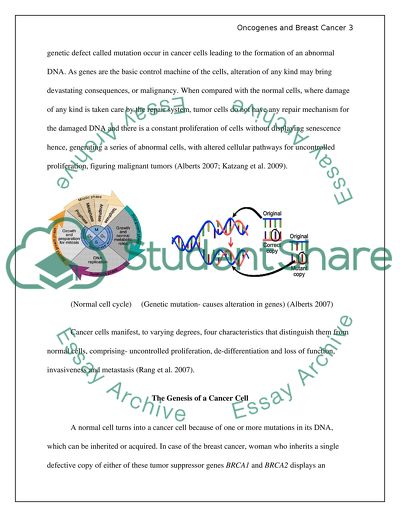Oncogenes and Breast Cancer Term Paper Example | Topics and Well Written Essays - 1500 words. Retrieved from https://studentshare.org/biology/1442041-oncogenes-and-cancer
Oncogenes and Breast Cancer Term Paper Example | Topics and Well Written Essays - 1500 Words. https://studentshare.org/biology/1442041-oncogenes-and-cancer.


